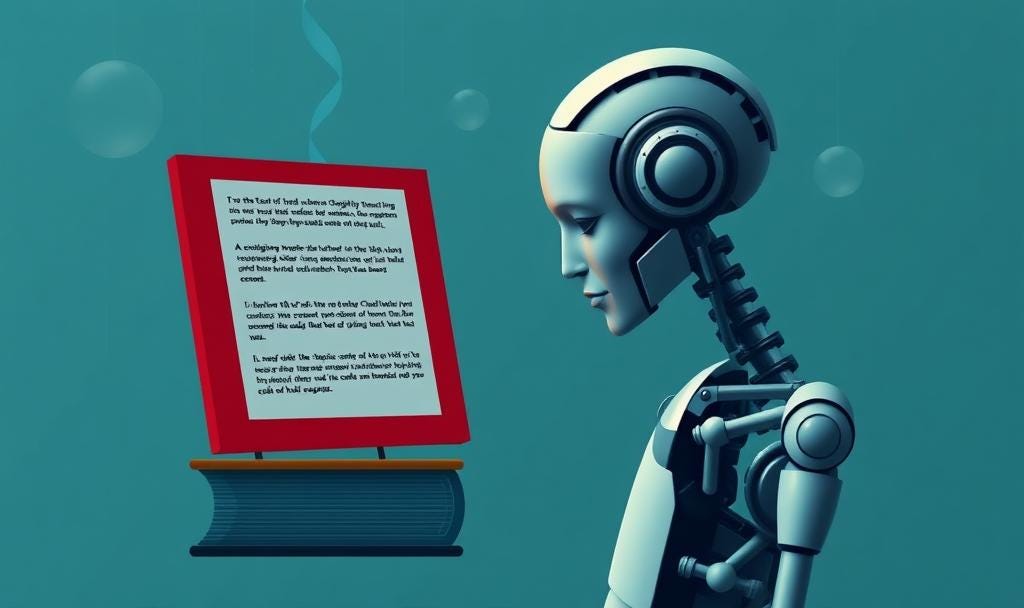There is a new voice in the study these days.
It does not hum a hymn or sigh in prayer. But it is there, offering ideas, outlines, commentary, and structure. Artificial Intelligence—tools like ChatGPT, Grammarly, Logos-integrated plugins, and sermon generators have stepped into the sacred space of sermon preparation.
As a pastor who loves both theology and technology, I understand the curiosity, the temptation, and the tension. AI can help. But if you are not careful, it can also hollow out your holy.
This article is not a rejection of AI. Nor is it blind enthusiasm. It is a thoughtful roadmap for how preachers can responsibly, reverently, and effectively use AI tools in sermon preparation, while keeping the voice of God louder than the voice of the machine.
First Things First: What Sermon Writing Is (And Is Not)
Before we talk about tools, let us talk about the task. Preaching is not a content delivery job. It is a spiritual responsibility. Sermons are not speeches. They are sacred assignments birthed in prayer, soaked in Scripture, and delivered with the weight of eternity.
That means sermon preparation is more than organizing points. It is about opening your heart to the Spirit. It is about letting God break you open before you stand up to feed others.
AI can help organize. It can summarize. It can suggest structure.
But AI cannot give you a burden.
It cannot give you conviction.
It cannot replace the Spirit’s whisper in the midnight hour.
❌ Do not use AI to write your sermon for you. Use AI to help you study. Let God help you preach.
The apostle Paul told Timothy, “Study to show yourself approved unto God, a workman that needeth not to be ashamed, rightly dividing the word of truth” (2 Timothy 2:15). No matter how advanced the tools become, the responsibility remains ours.
What AI Can Do: 5 Ways to Use It with Integrity
If you are clear that you preach from prayer, not plugins, then AI can serve your process. Think of it as an assistant, not a ghostwriter. Here are five ways to use AI responsibly in sermon prep:
1. Idea Generation
Every preacher hits a wall. You have the text, but the themes feel flat. AI can help you brainstorm. You can ask it:
“What are possible preaching angles from Luke 5:1–11?”
“List biblical themes in 2 Corinthians 4.”
It is not inspiration—it is exploration. You are still the one doing the discerning.
2. Historical or Cultural Context
AI is useful for quick context, such as geography, customs, Roman law, or ancient family structures. This saves time and broadens your perspective, but do not take everything as fact. Cross-reference with trusted theological resources.
❌ Do not let AI become your commentary. It is not infallible. Only Scripture is.
3. Structure and Clarity
If you have all your thoughts jumbled, AI can help you organize them. You might feed in your notes and ask for a sample outline. It can clean up phrasing or suggest transitions.
But remember: clarity is not always Spirit-led. Sometimes God wants your structure undone to make you depend on Him.
❌ Do not let clean structure replace divine struggle.
4. Language Variety and Simplicity
AI can help simplify theological ideas or adjust reading levels. If your people include teenagers and elders, this tool can help you communicate more clearly across generations.
Just make sure you understand what you are preaching. Do not let AI simplify you into superficiality.
5. Devotional and Discipleship Follow-Up
After the sermon, you can use AI to generate daily reflection prompts, questions for small groups, or even graphics. This helps reinforce the message throughout the week.
Use it to turn your sermon into a midweek devotional, a journaling prompt, or a quote card. Let it help you multiply your message.
❌ Do not outsource your pastoral care. The people need your voice, not just your digital reach.
The Greatest Temptation: Speed Over Soul
AI makes it faster. No question.
But that is the danger.
Sermon preparation was never supposed to be efficient. It is supposed to be formational. It is in the wrestling, weeping, wondering, and waiting that the sermon starts to preach back to you. If your only goal is to finish the sermon faster, you have missed the point.
God is not just after your product. He is after your process.
❌ Do not trade speed for sincerity. Do not trade ease for an encounter.
Use AI to save time on the outer edges of sermon writing while spending more time in Scripture, prayer, and soul reflection.
A Theological Word: Who Is Doing the Speaking?
Preaching has always been mediated. We use lexicons, Bible software, books by dead theologians, and commentary writers we will never meet. So, using AI is not inherently sinful.
❌ You cannot outsource your hearing from God.
The call to preach is a call to listen, not just to read, summarize, or arrange ideas. Preachers are prophetic voices, not content managers.
The apostle Paul reminds us in 1 Corinthians 2:13, “This is what we speak, not in words taught us by human wisdom but in words taught by the Spirit.” If what we preach is spiritually discerned, then no tool can replace the time it takes to sit still and hear.
An Ethical Caution: AI and Plagiarism
Let us be clear: plagiarism is still plagiarism, even if the sermon came from a machine.
Copying an AI-generated sermon and preaching it as your own without prayer, study, or discernment is not just lazy. It is dishonest. It breaks trust with your people and disrespects the pulpit God gave you.
You can borrow structure. You can shape ideas. But the message must go through you—your soul, your study, your calling.
If AI writes the sermon, you are not preaching. You are performing.
❌ Do not substitute output for obedience.
Practical Safeguards: Keep the Soul in the Study
If you are going to use AI, build fences around your process:
Start with Scripture, not prompts. Open your Bible first.
Pray before you open your laptop. Let your soul be stirred before your screen lights up.
Keep a physical journal. Write what God is showing you before you polish it on a screen.
Use AI late in the process, not early. Let it refine, not define.
Run everything through the Spirit. Ask: “Does this sound like me? More importantly, does it sound like God?”
Final Thoughts: Spirit Over Script
I believe preachers must walk wisely into this AI moment. There is great potential for help, but also deep danger if we abandon the Spirit for speed.
I will use AI to help me check grammar. I might ask it to make my language simpler. I will use it to brainstorm, to check cultural context, or to organize a flood of thoughts.
But I will never let it write my sermon.
Because it is not its sermon.
It is mine—and God let me preach it.
❌ Let AI help you, but never replace you. Never replace God.
When I preach, I want it to be clear and helpful. But more than that, I want it to be true. I want it to come from fire, not just files. From tears, not just text.
Because the people do not just need a word.
They need a word from the Lord.
And that… cannot be automated.
The Shepherd’s Note is the pastoral reflection section of each newsletter, offering a grounded word of encouragement, correction, or clarity for those called to preach and lead with integrity.
Keep reading with a 7-day free trial
Subscribe to Preaching Guru to keep reading this post and get 7 days of free access to the full post archives.







